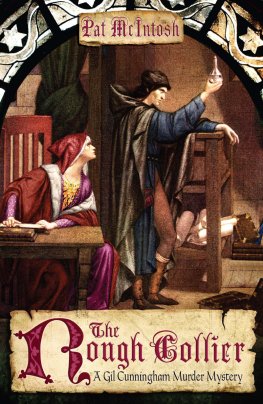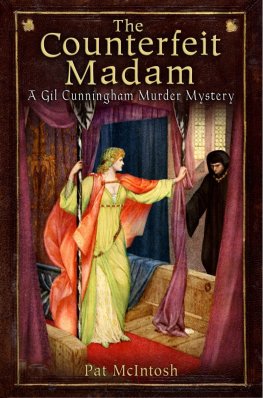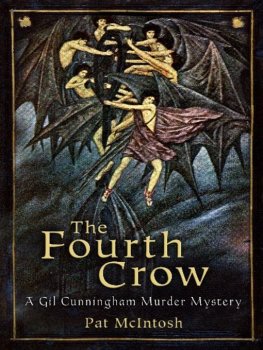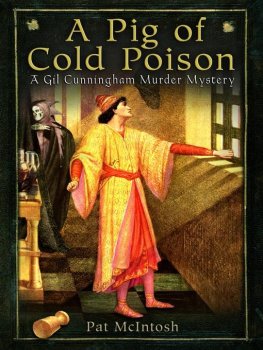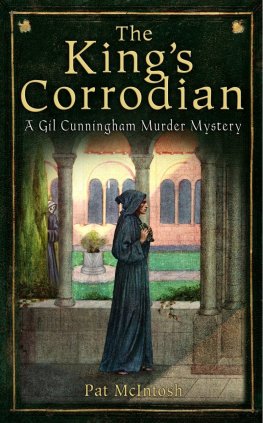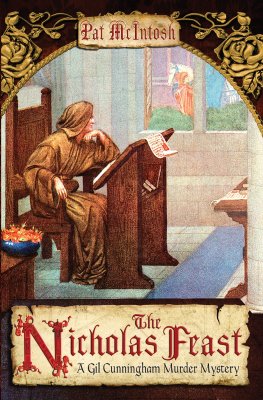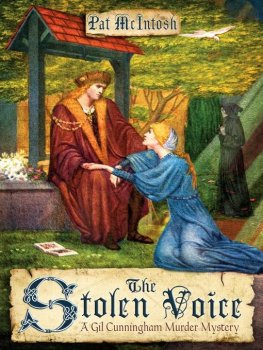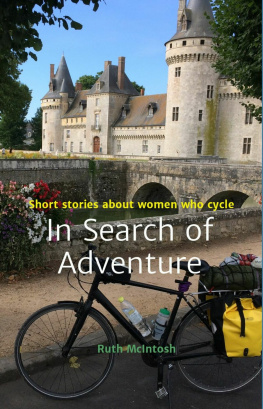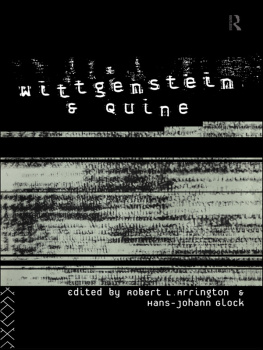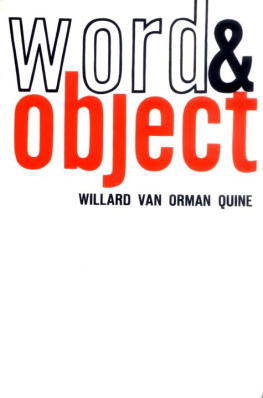Pat McIntosh - The Harper's Quine
Here you can read online Pat McIntosh - The Harper's Quine full text of the book (entire story) in english for free. Download pdf and epub, get meaning, cover and reviews about this ebook. genre: Detective and thriller. Description of the work, (preface) as well as reviews are available. Best literature library LitArk.com created for fans of good reading and offers a wide selection of genres:
Romance novel
Science fiction
Adventure
Detective
Science
History
Home and family
Prose
Art
Politics
Computer
Non-fiction
Religion
Business
Children
Humor
Choose a favorite category and find really read worthwhile books. Enjoy immersion in the world of imagination, feel the emotions of the characters or learn something new for yourself, make an fascinating discovery.

- Book:The Harper's Quine
- Author:
- Genre:
- Rating:4 / 5
- Favourites:Add to favourites
- Your mark:
- 80
- 1
- 2
- 3
- 4
- 5
The Harper's Quine: summary, description and annotation
We offer to read an annotation, description, summary or preface (depends on what the author of the book "The Harper's Quine" wrote himself). If you haven't found the necessary information about the book — write in the comments, we will try to find it.
The Harper's Quine — read online for free the complete book (whole text) full work
Below is the text of the book, divided by pages. System saving the place of the last page read, allows you to conveniently read the book "The Harper's Quine" online for free, without having to search again every time where you left off. Put a bookmark, and you can go to the page where you finished reading at any time.
Font size:
Interval:
Bookmark:
Pat McIntosh
The Harper's Quine
Chapter One
Glasgow, 1492
At the May Day dancing at Glasgow Cross, Gilbert Cunningham saw not only the woman who was going to be murdered, but her murderer as well.
Strictly speaking, he should not have been there. Instead he should have been with his colleagues in the cathedral library, formulating a petition for annulment on grounds which were quite possibly spurious, but shortly after noon he had abandoned that, tidied his books into a neat stack in his carrel, with Hay on Marriage on the top, and walked out. A few heads turned as he went, but nobody spoke.
Descending the wheel stair, past the silent chambers of the diocesan court, he stepped out into the warm day enjoying the feeling of playing truant and closed the heavy door without stopping to read the notices nailed to it. The kirkyard was busy with people playing May-games, running, catching, shrieking with laughter. Gil went out, past the wall of the Archbishops castle, and jumped the Girth Burn ignoring the stepping stones. From here, already, he could hear the thud, thud of the big drum, like the muffled beat for a hanging.
There was plenty of movement in the steep curving High Street too. Weary couples, some still smelling of smoke from the bonfires, were returning home in the sunshine with their wilting branches. Others, an honest days work at least attempted, were hurrying from the little thatched cottages to join the fun. Hens and dogs ran among the feet of the revellers, and a tethered pig outside one door had a wide empty space round it.
Further down, where the slope eased and the houses were bigger, a group of students were playing football under the windows of the shabby University building, shouting at each other in mixed Latin and Scots. Gil nodded to the solemn Dominican who was guarding the pile of red and blue gowns, and skirted the game carefully with the other passers-by. Beyond the noise of the players and onlookers he could hear the drum again, together with the patter of the tabor and a confused sound of loud instruments which came to a halt as he drew near to the Tolbooth.
At the Mercat Cross there was dapping and laughter. The dancers were still in the centre of the crossing, surrounded by a great crowd. More people lined the timber galleries of the houses, shouting encouragement, and several ale-wives who had brought barrels of ale down on handcarts were-doing a brisk trade.
The burgh minstrels on the Tolbooth steps, resplendent in their blue coats under an arch of hawthorn branches, had added a man with a pipe and tabor and a bagpiper to the usual three shawms and a bombard. As Gil reached the mouth of the High Street they struck up a cheerful noise just recognizable as The Battle of Harlaw.
A strange choice for the May dancing, he remarked to the man next to him, a stout burgess in a good cloth gown with his wife on his arm. Oh, its yourself, Serjeant, he added, recognizing the burghs chief lawkeeper. Good day to you, Mistress Anderson.
Mistress Anderson, more widely known as Mally Bowen the burgh layer-out, bobbed him a neat curtsy, the long ends of her linen kerchief swinging, and smiled.
The piper only has the two tunes, explained Serjeant Anderson, that and The Gowans are Gay, and theyve just played the other.
I see, said Gil, looking over the heads at the top dancers advancing to salute their partners, while more couples pushed and dragged one another into position further down the dance. By the time all were in place the top few were already linking arms and whirling round with wild war-cries. A far cry from Aristotles ideal, he thought.
Its a cheery sound, yon, said Gils neighbour in his stately way. Gil nodded, still watching the dancers. Most were in holiday clothes, some in fantastic costume from the pageant, or with bright bunches of ribbon or scraps of satin attached to their sleeves. Many of the girls, their hair loose down their backs, were garlanded with green leaves and flowers, and their married sisters had added ribbons to their linen headdresses. Students from the College, sons of burgesses in woollen, prentice lads in homespun, swung and stamped to the raucous music.
Watching a pair of students in their narrow belted gowns, crossing hands with two girls who must be sisters, Gil tried to reckon when he had last danced at the Cross himself. It must be eight years, he decided, because when he first returned to Scotland his grief and shock had kept him away, and last year he had been hard at work for his uncle on some case or other. He found his foot tapping.
See her, said the serjeant, indicating a bouncing, blackbrowed girl just arming with a lad in brown doublet and striped hose. Back of her gowns all green. Would ye take a wager shes doing penance for last nights work next Candlemas, eh, Maister Cunningham?
Oh, John! said his wife reproachfully.
Shell not be the only one, if so, Gil observed, grinning. Theres a few green gowns here this morning.
And Ill wager, this time o year, Maister Cunningham, you wish you were no a priest, added the serjeant, winking slyly up at Gil.
Now, John!
Im not a priest, said Gil. Not yet, said something at the back of his mind, as he felt the familiar sinking chill in his stomach. When the man looked sceptically at his black jerkin and hose, he added reluctantly, Im a man of law.
Oh, so Ive heard said. Youll excuse me, maister, said Serjeant Anderson. Ill leave ye, afore ye charge me for the time of day. Come on, hen.
Im at leisure today, Gil said, but the serjeant had drawn his wife away. Gil shrugged, and turned his attention back to the dancing. The couple he had been watching had completed their turn of the dance and were laughing together, the boy reaching a large rough hand to tug at the girls garland of flowers. She squealed, and ducked away, and just then the tune reached an identifiable end and the musicians paused for breath. The man banging the big drum kept on going until the tenor shawm kicked him. He stopped, blinking, and the dancers milled to a halt.
Gil took advantage of the general movement to climb a few steps up the nearest fore-stair, where several people were already perched out of reach of the elbows and feet of the mob.
More! shouted someone. Anther tune!
The band made its reluctance clear. A short argument developed, until someone else shouted, The harper fetch the harper!
Aye, the harper! agreed several voices at once. The cry was taken up, and the band filed down the steps, carrying its instruments, and headed purposefully for the nearest ale-wifes trestle.
This will be good, said someone beside Gil. He looked round, and found the next step occupied by a tall, slender girl with a direct brown gaze above a narrow hatchet of a nose. The harper, she added. Have you heard him? He has two women that sing.
No, I havent, he admitted, gazing appreciatively.
They sang Greysteil at the Provosts house at Yule.
What, the whole of it? All four thousand lines?
She nodded. It took all afternoon. It was Candlemas before the tune went out of my head.
I have never heard it complete. There cant be many singers could perform it like that.
They took turns, she explained, so neither voice got tired, and I suppose neither needed to learn the whole thing. One of them had her baby with her, so she had to stop to nurse it.
What about the audience? said Gil.
The brown eyes danced. We could come and go, she pointed out. I noticed the Provost found duties elsewhere in his house.
And his lady? said Gil, half at random, fascinated by her manner. She was dressed like a merchants daughter, in well-cut brown linen faced with velvet, and she was clearly under twenty, but she spoke to him as directly as she looked, with none of the archness or giggling he had encountered in other girls of her class. Moreover, she was tall enough to look nearly level at him from the next step up. What was that poem some King of Scots wrote in captivity? The fairest or the freschest yong flower That ever I saw, me thocht, before that hour. It seemed to fit.
Font size:
Interval:
Bookmark:
Similar books «The Harper's Quine»
Look at similar books to The Harper's Quine. We have selected literature similar in name and meaning in the hope of providing readers with more options to find new, interesting, not yet read works.
Discussion, reviews of the book The Harper's Quine and just readers' own opinions. Leave your comments, write what you think about the work, its meaning or the main characters. Specify what exactly you liked and what you didn't like, and why you think so.

